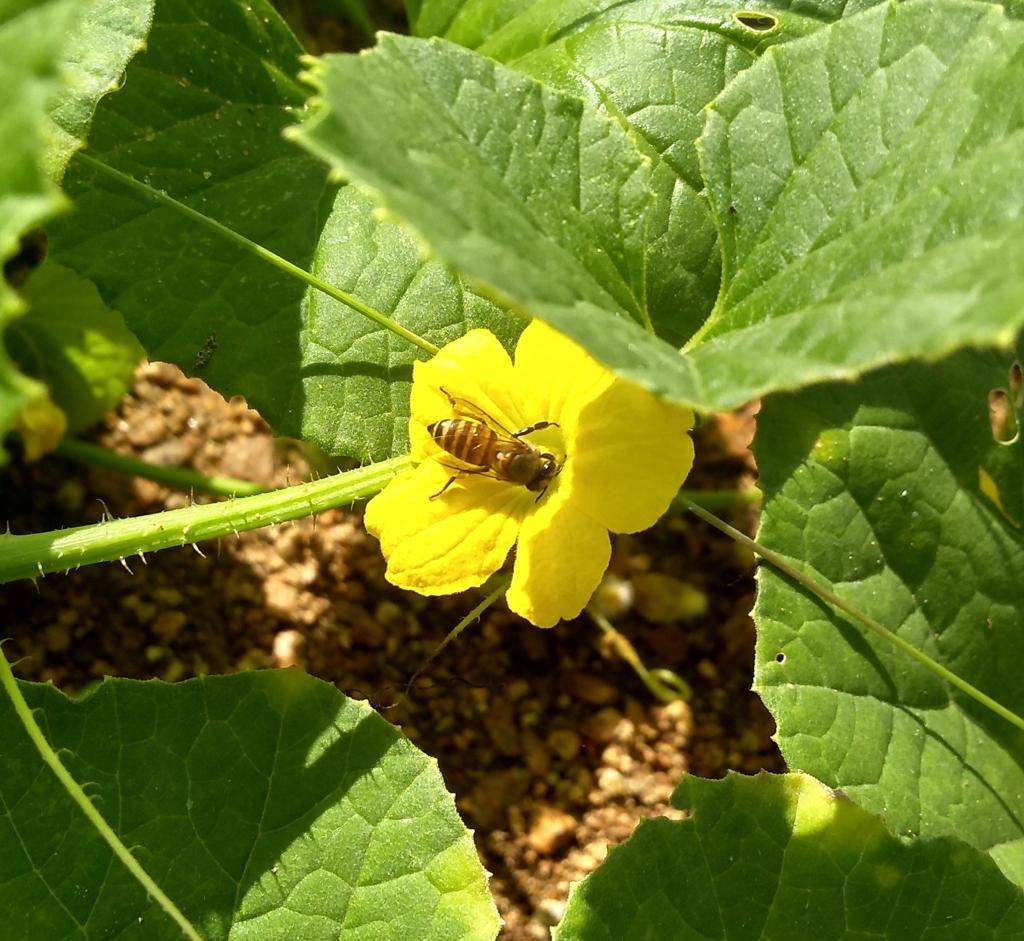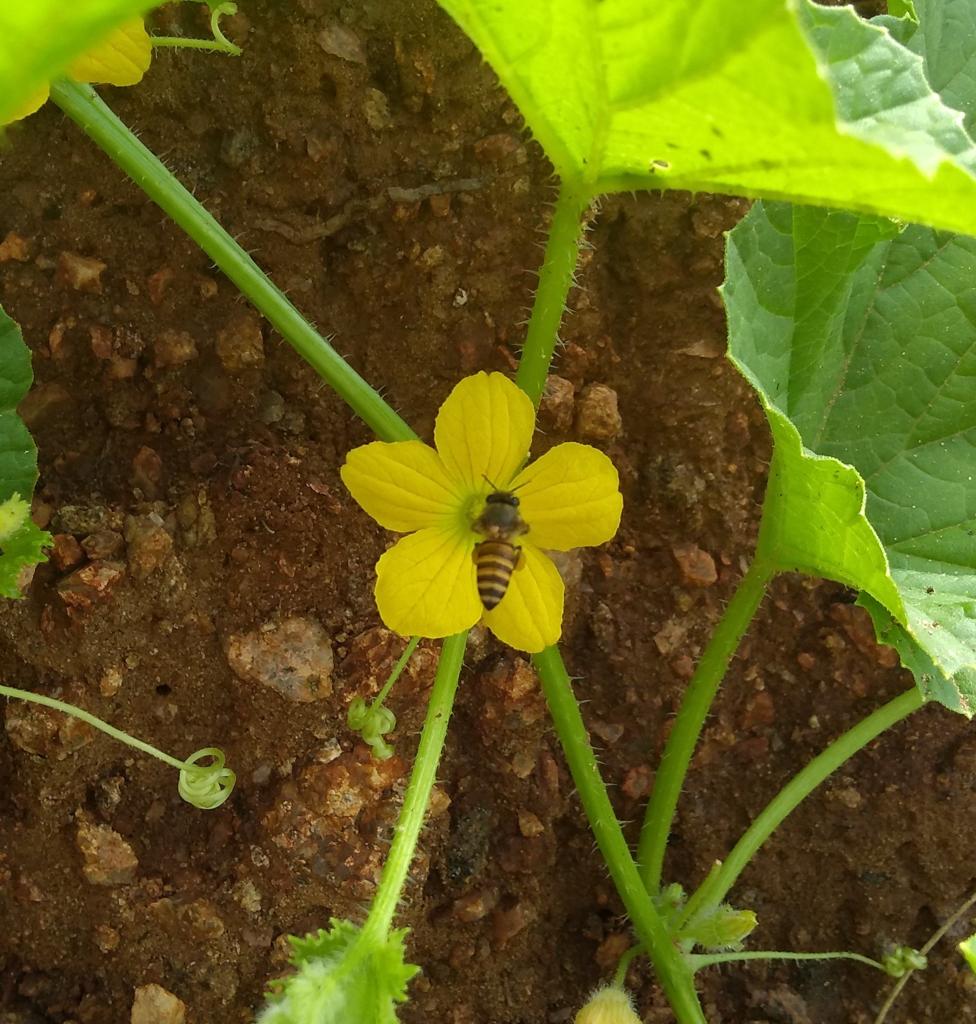When you already ‘know’, do you really ‘see’?
I was waking in the garden when I noticed the bees and the flowers. I called one of the children over, to show her.
I said, “look!” I was very happy we got the opportunity to see the bees in action. I was thinking: ‘here is something she might have read about, how exciting to see it in real life!!’
 She came. She took one look. And said, “pollination”. Matter of fact. Only the shrug of indifference was missing.
She came. She took one look. And said, “pollination”. Matter of fact. Only the shrug of indifference was missing.
I tried again. Prompted her to move to a different position, see a different bee in a different flower. The same expression.
Meanwhile, the bees buzzed off.
 Then I ask, “did you see how the bee was holding it’s feet as it hovered around the flower?”
Then I ask, “did you see how the bee was holding it’s feet as it hovered around the flower?”
“No.”
“Did you notice how fast it’s wings were moving?”
“No.”
“Did the bee have circles around it’s abdomen?”
“I didn’t notice.”
I probe further. “Why not?” And a few more words.
“I didn’t notice because I knew”.
“What did you know?”
“Pollination”
“How did you know?”
“I read it in a book”
“Did you ever really see it before?”
“No.”
“Did you observe now?”
“No”
“And that’s because?”
“I already knew!!”
“What did you really know?”
“That it’s called pollination”
“If a child did not know that word, and was seeing it for the first time, what would she have done?”
“I don’t know”
“Would she have observed more than you did?”
“I think so.”
And a few more such questions.
“So what did knowing the name really do to you?”
“It stopped me from observing.”
There you go.
I had heard this for the first time in a dialogue session at a J.K. inspired school: “once you know it is a crow, do you actually continue to see?”